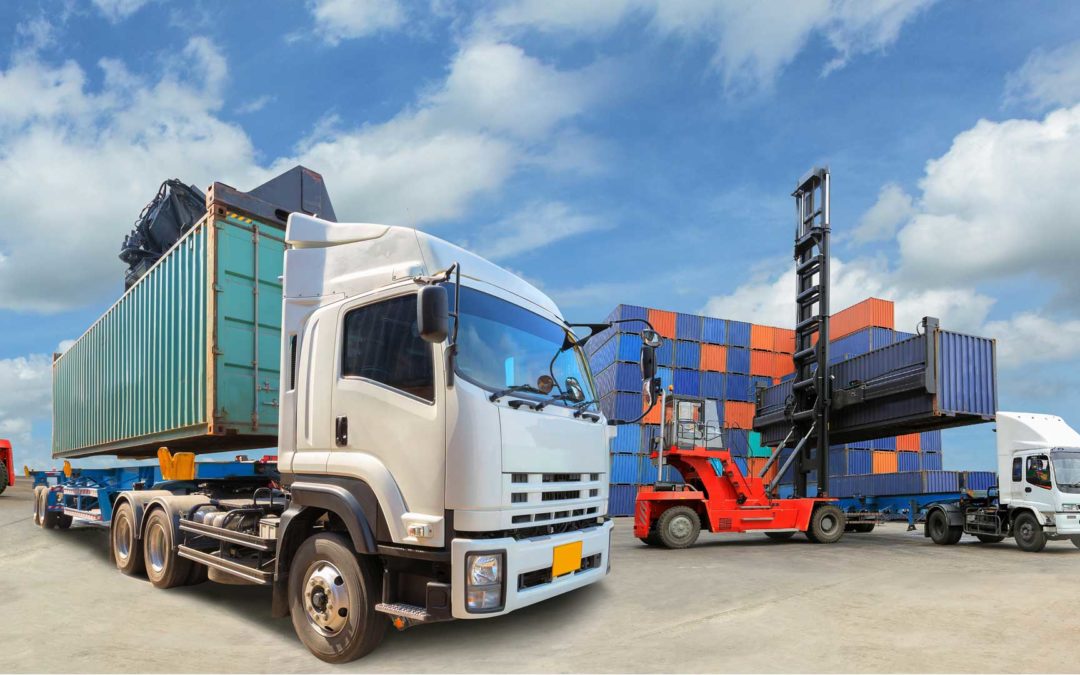In Part I of this 3-part article series, we outlined the reasons for upgrading or replacing your transportation management system (TMS). In this article, we’ll show you how to select the right TMS for your organization.
The right transportation management system produces both process and savings improvements while helping to enhance productivity, minimize manual steps, and optimize the end-to-end supply chain. But with many different TMS options available on the market today, how do you really know that you’re selecting the best one for your operations?
That question is particularly important for industrial manufacturers whose operations don’t always align well with TMS that’s been developed for a broader audience of shippers. The chemical manufacturer shipping break bulk cargo, the mining company that utilizes rail, and the forest products manufacturer that relies on intermodal all have very different transportation management needs than, say, the e-commerce shipper, retailer, or wholesale distribution firm.
For this and other reasons, the “off the shelf” approach to TMS shopping doesn’t work for industrial manufacturing firms and other companies that use break bulk cargo. Instead, companies should take the time to look for a system that:
- Meets their specific needs. What does your company need right now, what are its biggest transportation pain points, and how can the software solve these issues? If, for example, you have low visibility over your supply chain, then you want a TMS that provides high levels of data and reporting, both of which can help you quickly answer the ever-present customer query: Where’s our stuff?
- Manages the end-to-end process. Look for a TMS that offers end-to-end automation and that helps you seamlessly manage the entire supply network across all modes—and not just specific pieces or parts of it. Your TMS should also be able to handle the complete order-to-cash process, including carrier selection, order follow through, track and trace, freight consolidation, guidance with route selection, and carrier payment.
- Reduces delivery times and improves customer service. B2B manufacturers need systems that help them provide detailed shipment visibility to their customers, who are just as demanding as B2C customers when it comes to delivery windows. The right TMS will provide information about pricing and load management, and will also ensure that your shipments get from point A to point B on time and within budget.
- Provides actionable business intelligence and analytics. When all of the data that you need it right at your fingertips, you can make better shipping decisions on the fly. This is especially important in a shipping environment where freight rates are rising and capacity is fluctuating.
- Serves up a selection of local, regional, and national multimodal carriers. By casting a wide net, the right TMS will help you secure capacity on a shipment-by-shipment basis, via dedicated lane opportunities, or on the spot freight market. This ensures that your loads are covered at the best possible price and within desired timeframes.
- Provides high levels of flexibility. Look for a TMS that’s flexible and adaptable, and that can manage the rigors of the B2B manufacturing world. If it connects directly into a global supply chain control tower like IntelliTrans does, all the better.
- Integrates seamlessly with outside systems. Sometimes you need to connect outside systems into your TMS (i.e., standalone, industry-specific platforms), so look for one that easily integrates with the tools that your company needs to operate efficiently.
- Handles regulatory compliance. Make sure your TMS provides the integration and reporting required by the Federal Motor Carrier Safety Administration (FMCSA) for electronic logging devices (ELDs) and accurate hours-of-service tracking.
- Comes recommended by other companies in the sector. Your TMS vendor should be able to share real-world customer success stories and/or references from companies just like yours. This is particularly important for industrial manufacturers whose transportation management needs differ greatly from, say, an e-commerce company or retailer.
- Grows right along with the company. Choose a TMS that meets both your current and future needs, and that can scale up as your organization grows. Put simply, scalability means that all components of the TMS (i.e., architecture, infrastructure, and underlying services) can handle your current requests and also meet future demands.
In the final installment of this 3-part article series, we highlight the key benefits that companies see when they replace or upgrade to a modern, cloud-based TMS platform.
.jpg)
IntelliTransTMS is the only SaaS-based TMS that provides shipment execution and visibility across rail, truck, intermodal, barge, and ocean shipments. Whether you ship hundreds or thousands of loads a month, lowering distribution costs helps improve your bottom line. IntelliTransTMS reduces labor-intensive, time-consuming and error-prone business processes. From shipment visibility to invoice auditing and analytics, you have everything you need whenever and wherever you need it.
IntelliTrans’ Global Control Tower provides high levels of supply chain transparency; aggregates, completes, and enhances data from a variety of sources; offers visibility into and execution of different aspects of the supply chain; and generates data-driven alerts and analytics that ask deeper questions and deliver meaningful insights.
By leveraging tracking information, the Global Control Tower provides analytics that measures key performance indicators (KPIs) like fleet cycle time, origin/destination dwell time, lane and hauler performance, back orders, freight spend, load optimization, and more. With their rate, equipment, lease, tracking, and invoice data in a central repository that’s accessible 24/7, companies can position themselves for success in any market conditions.

